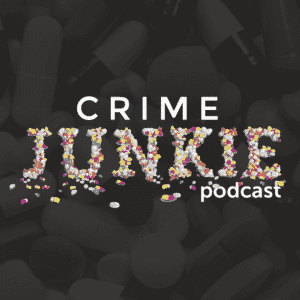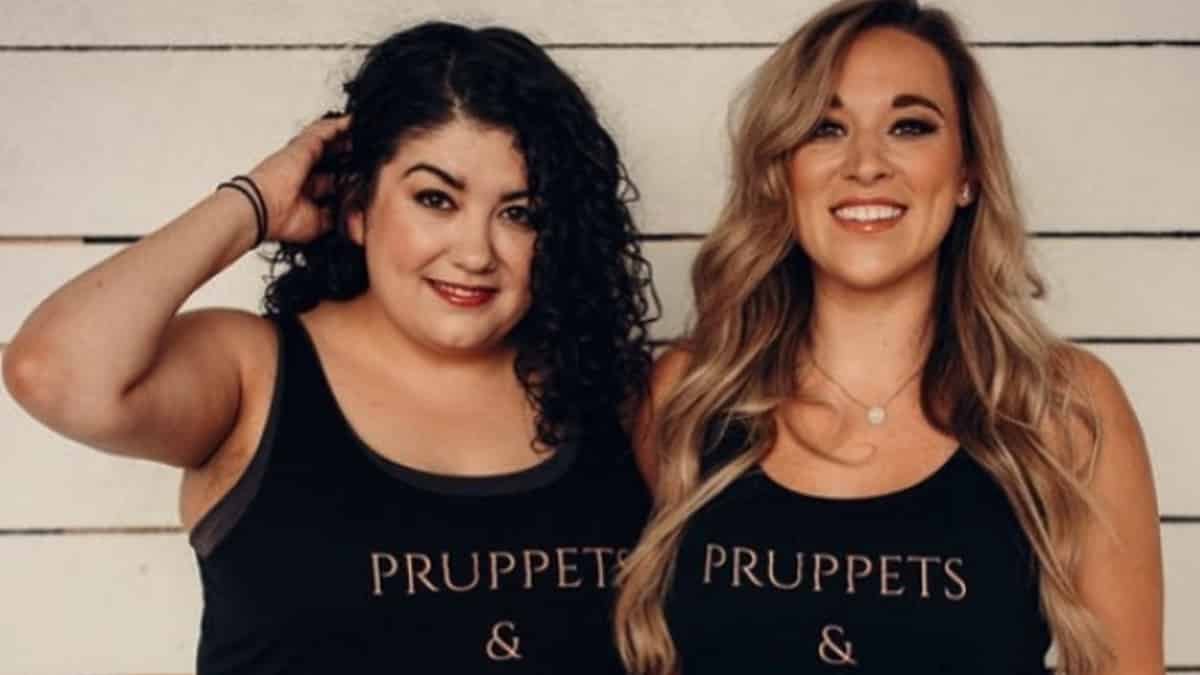Crime Junkie: From Top Podcast to Plagiarism Pariah
When the audience becomes the detective...

Three weeks ago, Ashley Flowers and Brit Prawat were sitting atop of the podcasting world. Their podcast, Crime Junkie, was routinely at number one on the iTunes podcast charts and they were a dominant force in the very popular (and very active) true crime genre of podcasts.
However, on August 11, 2019, journalist Cathy Frye posted a comment on a post made by Flowers that called the podcast out for plagiarism. According to Frye, worked as a journalist for the Arkansas Democrat-Gazette. During her time there, she penned a four-part series about the abduction and murder of Kacie Woody, a 13-year-old Arkansas girl.
Frye claimed that much of the information Flowers and Prawat read off could have only come from series and that at least one passage was near-verbatim. According to Frye, her work was not mentioned in the show notes nor was it cited during the podcast itself.
Frye threatened the duo with legal action if they didn’t remove the episode, which they did. However, that did little to end the issue. Soon, other allegations began to fly. Of particular issue was an episode on Paula Zahn that was alleged to be a “lazy copy” of an episode of Investigation Discovery and an episode about Misty Copsey that allegedly had similarities to an episode of the Unresolved Podcast.
Those three episodes, along with four others, simply disappeared from the site’s archives with little explanation.
Flowers did respond to the allegations saying in a statement to Variety that:
“Our research process is thorough, rigid, and exhaustive, and those familiar with ‘Crime Junkie’ are aware that we make clear references to the use of other sources and that comprehensive notes and links to all sources are made available on our show’s website.”
Flowers added:
“We recently made the decision to pull down several episodes from our main feed when their source material could no longer be found or properly cited. Since then, we’ve worked to put additional controls in place to address any gaps moving forward.”
However, that has not sated the anger of many of the show’s fans. Currently, several of them are using a publicly-viewable spreadsheet to track the allegations of plagiarism and, according to it (as of this writing) seven episodes have been deleted and 19 have been implicated in plagiarism to some degree.
As big as that is, it may not be the end of it as Twitter user @TrueCrimeBS indicates that some 20+ podcasters and journalists have come forward with evidence of plagiarism.
Meanwhile the podcast has continued. It’s August 19th episode made no mention of the allegations and, though the podcast has received a large number of one star reviews, it’s also gotten a large number of five star reviews as well. As of this writing it sits at 4.9 out out of five. Though the podcast didn’t reach number one on the iTunes charts, it still came in as number five.
But this raises its own questions: What actually happened? Did the duo actually commit plagiarism or is this a tempest in a teapot? Also, where do we go from here?
To answer those questions, we need to take a deep dive into the accusations, their severity and likely outcomes.
Understanding the Plagiarism

The plagiarism in this case is difficult to understand because it isn’t really one case of alleged plagiarism. It’s more than a dozen of very different cases. The allegations range from ones like Frye’s where the duo is accused of plagiarizing, including near-verbatim, without any attribution to other cases where the source was attributed in the show notes but not in the podcast and the verbiage overlap is less obvious.
To make matters worse, many of the allegations have not and cannot be confirmed. Though the deleted Crime Junkie episodes are still trivially available, much of the alleged source material is not. Furthermore, podcasts are a difficult format to do such analyses on as, without transcriptions of both the source and the alleged plagiarism, traditional software can’t do the matching.
Instead, for the purpose of this article, it’s easiest to focus on the first allegation. Not only is it the best understood but it is also the best documented, done so with this publicly viewable Google Doc that shows the alleged similarities.
There, a pattern becomes pretty clear, there are many facts and details that could have only come from Frye’s reporting and, despite that, Frye was not listed as a source at all. Not mentioned in the podcast, not mentioned in the show notes, not anywhere.
But, while all of the facts certainly do point to plagiarism, it doesn’t point to a lot of verbatim plagiarism. Even taking the two sides and running them through a quick plagiarism check doesn’t show much overlapping text. They clearly learned heavily on Frye’s work but weren’t exactly reading from it verbatim either and that makes sense consider Crime Junkie is a conversational format podcast and Frye’s work was journalistic in nature.
Yes, they absolutely should have cited Frye and they were wrong to not do so. But there are real questions about when and how. The show notes seem obvious but what were their obligations within the podcast itself? Conversational podcasts are meant to simulate casual conversation and, if you listen to the way people talk, they often omit citation and instead use a mutual understanding that what they’re saying isn’t original.
Part of the problem is that podcasting doesn’t really have a unified citation standard. Academic papers have MLA/APA/Chicago, Twitter has retweets and @s, Facebook has a whole share system but podcasts have nothing of the sort. Even YouTube has a more robust set of community standards on attribution than podcasting.
But with all of that ambiguity, it’s very clear that Crime Junkie could have and should have done more to clearly cite their sources. They clearly leaned very heavily on Frye’s work and never mentioned her anywhere. A nod to her on the podcast and a link the public show notes seems the least that they could have done.
However, the worst part of this story might not be the plagiarism, but the way the allegations were handled. More than the allegations themselves, it seems the response of the duo has been what’s keeping this story alive.
The Questionable Response
The only time that Flowers and Prawat have responded to the story is in the aforementioned Variety article. Other than that, they’ve kept pretty much quiet.
If Flowers and Prawat had any interest in actually confronting with and dealing with the issues that were raised, the way to do so would be with great transparency. Highlight the episodes that have deficient attribution, work with your audience to complete the attribution and discuss openly how you will improve the process moving forward.
That is not what they did. Instead, they removed episodes without notice, added links into show notes after the fact and have generally carried on as is. They have begun providing links with their show notes, but, as Redditors have noticed, it’s just a wall of URLs with no context. Redditor SnittingNexttoBorpo even referred to it as “malicious compliance.”
For Flowers and Prawat, this is likely smart. They know that this story will likely blow over at some point and, when it does, they’ll likely emerge from it still an extremely popular podcast. They aren’t viewed as journalists or authors, their audience (at least most of it) doesn’t turn to them for original work. A plagiarism scandal is bad, but not necessarily career-ending so they see little reason to confront it.
They’re probably right. Not ethically right, but right from a solely practical and cynical perspective.
But there is another issue at stake here: Trust. As Crime Junkie looks to parlay its podcasting success into other media, it needs to be known as a trusted source. Unfortunately, the approach they’re taking is not helping help an already weak sense of trust many feel with the podcast, and podcasting in general.
The Trust Issue
A recent article at Vulture pointed out just how thin the veneer of trust is when it comes to podcasting.
There is no independent way to verify download numbers, Apple’s podcasting charts can be easily gamed (something that Crime Junkie has been suspected of, albeit with little evidence) and Crime Junkie is notable for hiding all of their Patreon numbers. We know neither how much they make nor how many people contribute to their work.
A plagiarism scandal followed up this way simply feeds into the chatter that this type of environment brings forth. People were already talking about and suspecting chicanery, this story simply gives them vindication for doing so.
However, it won’t be Crime Junkie that feels the brunt of this. As we stated above, they know well that the story will pass and they will emerge from the other side battered but still an extremely popular and profitable podcast.
Instead, the damage is done to the podcasting medium. To have one of the world’s most popular podcasts get embroiled in such a scandal raises equal questions about the thousands of much smaller podcasts. Their shadow falls across the entire podcasting community, especially the true crime podcasting community.
Ultimately, the message many people will get isn’t that Crime Junkie shouldn’t be trusted, but that podcasts shouldn’t be trusted. After all, if this can happen to Crime Junkie, it can happen to anyone.
The sad truth is that, with stories like these, it’s often the medium or the genre that gets punished more than the plagiarists. Crime Junkie could help prevent that by addressing this issue, treating it seriously and helping develop new citation standards for themselves and others to follow.
In short, they could be leaders on this issue but, instead, have chosen to bury their heads.
Bottom Line
Stories like this expose the fact that podcasting, while a medium that’s been around for for over 20 years, doesn’t have a lengthy history of being taken seriously.
This podcasting resurgence has shined a new light on the format and some of the long-running challenges its faced. Attribution is definitely one of those challenges.
To that end, Crime Junkie took things to an extreme, using research carefully curated by others without providing any attribution at all. No matter how one feels about attribution in podcasting, that is a breach of trust.
However, it was also an opportunity. Crime Junkie could have gotten ahead of this story, worked with their fans and accusers to develop better citation standards and improve their own podcast. Instead, they seem to have fallen silent and are determined to do the bare minimum to keep the allegations of plagiarism away in the future.
Sadly, it won’t be Flowers and Prawat that suffer for it. Their podcast will be just fine. Instead, it will be podcasting as a medium that suffers. After all, if a podcast as large, popular and profitable as Crime Junkie can’t be trusted to cite sources well and handle attribution issues, how can a much smaller one?
The sad truth is that the people that suffer under the weight of a plagiarism scandal are often not the plagiarists.
Want to Reuse or Republish this Content?
If you want to feature this article in your site, classroom or elsewhere, just let us know! We usually grant permission within 24 hours.
